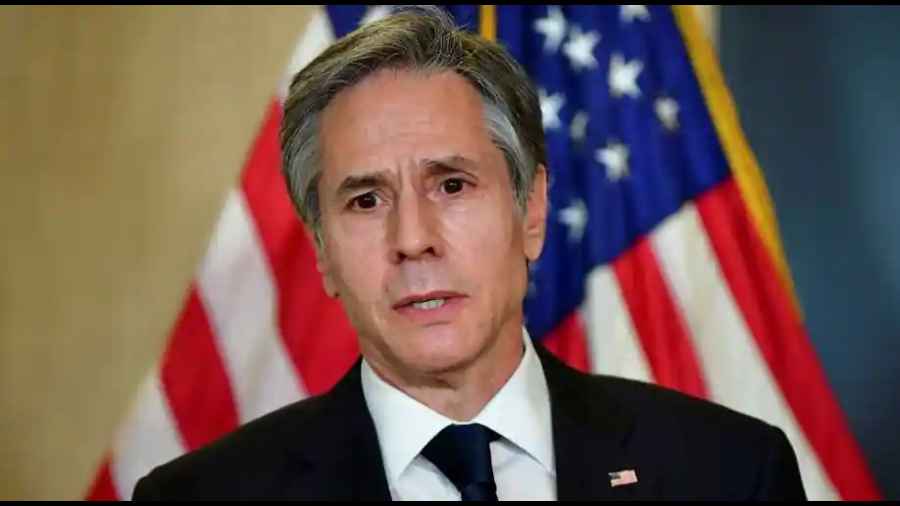It is in America's "profound interest" that China reins in the recent surge in coronavirus infections, US Secretary of State Antony Blinken has said, asserting that there are major implications if the world's second-largest economy remained shut down due to the virus.
China's stringent zero-COVID policy deployed mass testing and strict quarantine measures, which were revised earlier this month in the wake of mass anti-government protests.
Several Chinese cities endured lengthy lockdowns, often prompted by a handful of infections and there were indications that people were starting to run out of patience.
Experts are now predicting a difficult time ahead, with a grim prediction that close to 2 million deaths due to the virus by next year.
When asked about the latest surge in COVID-19 cases in China, Blinken said the US wants to see China get this outbreak under control for three reasons.
“First, we don’t want to see people anywhere suffering from COVID. Whether it’s illness, whether it’s death, we want to see that come to an end wherever it’s happening, including in China,” Blinken said, while addressing his year-end news conference here on Thursday.
“Second, any time the virus is spreading or is moving around, there is the possibility that a new variant develops, that variant spreads even further, and it comes and hits us or hits other countries around the world. So, we have a clear interest in that,” he noted.
“And then, as we’ve seen, there are clear implications for the global economy with China being shut down because of COVID. So on all of those levels – a basic humanitarian level, the concern for everyone’s health, as well as for the global economy – it’s profoundly in our interest that China do what’s necessary to get ahead of this,” he asserted.
Blinken said the US, which is the largest donor of Covid-19 vaccines in the world, was prepared to continue its support to people around the world, including China.
"China has not asked to date for that help, but, again, we’re fully prepared to provide assistance to anyone who asks for it if they think it’s useful,” he added.
The novel coronavirus first emerged in the central Chinese city of Wuhan in December 2019 before it turned into a pandemic.
As many as 656,162,246 cases and 6,675,354 deaths have been reported worldwide since the pandemic began, according to US-based Johns Hopkins University.











